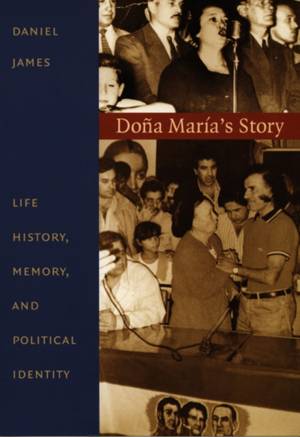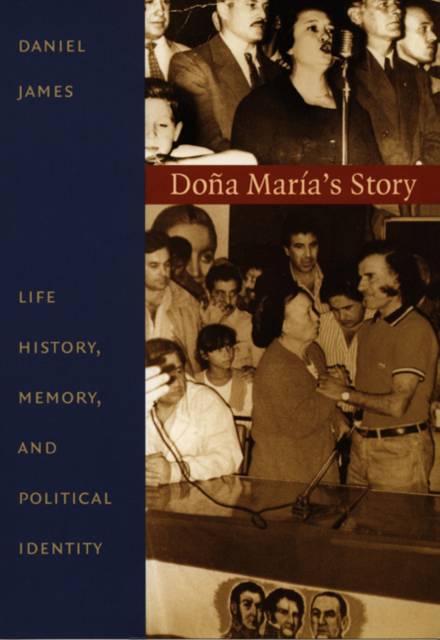
- Retrait gratuit dans votre magasin Club
- 7.000.000 titres dans notre catalogue
- Payer en toute sécurité
- Toujours un magasin près de chez vous
- Retrait gratuit dans votre magasin Club
- 7.000.000 titres dans notre catalogue
- Payer en toute sécurité
- Toujours un magasin près de chez vous
Description
In this remarkable book historian Daniel James presents the gripping, poignant life-story of Doña María Roldán, a woman who lived and worked for six decades in the meatpacking community of Berisso, Argentina. A union activist and fervent supporter of Juan and Eva Perón, Doña María's evocative testimony prompts James to analyze the promise and problematic nature of using oral sources for historical research. The book thus becomes both fascinating narrative and methodological inquiry.
Doña María's testimony is grounded in both the local context (based on the author's thirteen years of historical and ethnographic research in Berisso) and a broader national narrative. In this way, it differs from the dominant genre of women's testimonial literature, and much recent ethnographic work in Latin America, which have often neglected historical and communal contextualization in order to celebrate individual agency and self-construction. James examines in particular the ways that gender influences Doña María's representation of her story. He is careful to acknowledge that oral history challenges the historian to sort through complicated sets of motivations and desires--the historian's own wish to uncover "the truth" of an informant's life and the interviewee's hope to make sense of her or his past and encode it with myths of the self. This work is thus James's effort to present his research and his relationship with Doña María with both theoretical sophistication and recognition of their mutual affection.
While written by a historian, Doña María's Story also engages with concerns drawn from such disciplines as anthropology, cultural studies, and literary criticism. It will be especially appreciated by those involved in oral, Latin American, and working-class history.
Doña María's testimony is grounded in both the local context (based on the author's thirteen years of historical and ethnographic research in Berisso) and a broader national narrative. In this way, it differs from the dominant genre of women's testimonial literature, and much recent ethnographic work in Latin America, which have often neglected historical and communal contextualization in order to celebrate individual agency and self-construction. James examines in particular the ways that gender influences Doña María's representation of her story. He is careful to acknowledge that oral history challenges the historian to sort through complicated sets of motivations and desires--the historian's own wish to uncover "the truth" of an informant's life and the interviewee's hope to make sense of her or his past and encode it with myths of the self. This work is thus James's effort to present his research and his relationship with Doña María with both theoretical sophistication and recognition of their mutual affection.
While written by a historian, Doña María's Story also engages with concerns drawn from such disciplines as anthropology, cultural studies, and literary criticism. It will be especially appreciated by those involved in oral, Latin American, and working-class history.
Spécifications
Parties prenantes
- Auteur(s) :
- Editeur:
Contenu
- Nombre de pages :
- 336
- Langue:
- Anglais
- Collection :
Caractéristiques
- EAN:
- 9780822324928
- Date de parution :
- 16-01-01
- Format:
- Livre broché
- Format numérique:
- Trade paperback (VS)
- Dimensions :
- 155 mm x 231 mm
- Poids :
- 517 g







